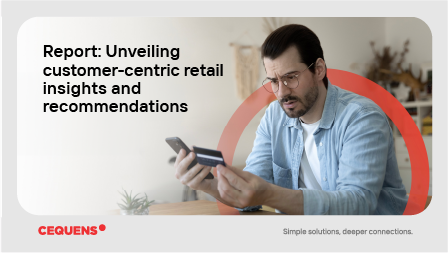Technology changes rapidly, with smaller devices providing more computing power than ever. As the speed of development continues to increase, businesses are faced with the seemingly simple question of which platform to adopt for their next set of systems.
Cloud-based productivity software has expanded rapidly over the last decade, and 93 percent of enterprise businesses already use some cloud-based system. But, not everyone is as eager to make the switch, and there are some very valid reasons to keep your servers on the ground.
No One Will Tell You...The Big Difference is Deployment
- When looking at the pros and cons of cloud vs. on-premise solutions, everything starts with an understanding of how these two models differ.
- Cloud solutions - With a cloud deployment, the vendor hosts all of your information and offers access through a web portal. You can turn off the server room and leave the management to a third party. This enables more mobility and flexibility of use for cloud-based software options.
- On-Premise solutions - When looking at an on-premise solution, you are committing to local ownership of your data, hardware, and software. Everything is run on machines in your facility with no third-party access.
The Secret is...Cost Comes into Play
- A lot of businesses have started the move to the cloud due to perceived cost savings. After all, cloud adoption usually has a significantly lower entry cost. Most cloud platforms bill as a recurring monthly expense with no initial capital outlay. The cost of an on-premise solution can be very high to start, with much lower operating costs.
- Some calculators put the total cost of ownership (TOC) at approximately the same at 10 years out. Of course, for that cost comparison to matter, on-premise solutions must stay relevant for an entire decade, an increasingly difficult challenge to meet as technology advances at an exponential rate. Plus, many experts put the TOC for on-premise much higher, adding in hidden costs and operational figures that don't exist with a cloud provider.
Follow us on Linkedin
Pros and Cons of Service
For most businesses, cloud solutions are less expensive, easier to run and require less space. That could put cloud right at the top of the list, but things are rarely that simple in practice. Here are a few things to consider.
Guide to Pros to the Cloud
- Predictable expenses: even if on-premise solutions were less expensive, the steady and predictable cost of cloud solutions means no sudden, large, capital outlay that can strain the budget in an upgrade year.
- Outsource security risks: depending on your industry, moving the security requirements to a third party can be a big stress release. After all, data breaches happen, and they can be very costly for a business. When that responsibility is in the hands of the vendor, individual businesses have one less headache. Also, smaller businesses get the benefit of enterprise-level security by working with an enterprise partner.
- Great out-of-the-box functionality: cloud solutions are ready to work from the day you adopt these platforms. Continuous updates mean your software is always current and compatible with new releases, and you don't struggle with a lot of unplanned downtimes.
- Fast and smooth rollout: no hardware means no long rollout times before you can start using this solution. There's no delay during physical installation, and no waiting for software customizations.
Guide to Pros to On-Premise
- One time expense: for some business models, it is easier to justify a one-time investment in hardware. Keeping operating costs low can free up cash and keep a business running in the black. Over time, an on-premise solution may even wind up offering cost savings.
- Security stays in-house: highly regulated industries can have major barriers for cloud systems, making on-premise the only option. For example, banks in Saudi Arabia are limited to on-premise solutions specifically due to security concerns.
- Fully Customizable options: while cloud solutions offer out-of-the-box functionality, on-premise allows you to customize your software to provide all of the information and applications you need at your fingertips.
- Controlled Rollout: cloud systems allow nearly instant rollout and implementation, but all of that is in the hands of the vendor. With on-premise solutions, you can control when, where and how you implement the changes. This lets you prioritize certain departments and arrange training schedules.
- Ultimately, the decision to choose cloud or on-premise solutions will depend on your business. If you need the most stringent security protocols and control over your data due to regulatory compliance issues, an on-premise solution is likely your best option. On the other hand, cloud-based solutions have shown great security options and in areas like Egypt where they are not tied up in regulations, even banking institutions choose to use the cloud.
- The ability to avoid regular infusions of cash to support aging hardware infrastructure and the controllable recurring costs of the cloud makes it a highly desirable solution when it is an option. Hybrid solutions are also available through CEQUENS for those times when you want tiered options for your communications.
- Maybe you keep your C-Suite messaging separate with on-premise and enable your field techs with cloud-based options. An in-depth analysis of your current systems is a good place to start before you make your final decision.
CEQUENS Can Help
- We're leading Communication Platform as a Service ( CPaaS ) provider in the Middle East and Africa (MEA) region that aims to bridge communication gaps in a communication-driven world.
- Powered by innovation and guided by a Cloud-First and Mobile-First approach, we provide omnichannel communication APIs that enable enterprises and developers to communicate with their customer base worldwide.
-
- As an Endeavor and GSMA associate member, CEQUENS plays a pivotal role in transforming communication in the region.
- CEQUENS proprietary, PCI/DSS compliant Communication Platform leverages the latest cloud technologies and features a comprehensive portfolio of products and solutions that are industry-focused, agile, scalable, and cost-effective.
Read Now: CPaaS++: The Future of CPaaS



